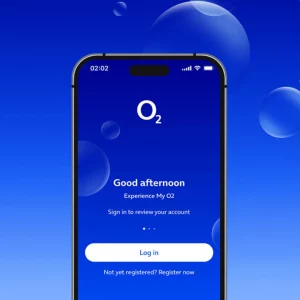Sponsored Links
Arthur D. Little Examines Next-Gen
Posted: 27th Sep, 2006 By: MarkJ
Arthur D. Little has published a new report - "Next Generation Networks in Europe - Broadband in 2011 and beyond". It estimates that the global broadband market in 2006 will be worth $75bn and $145bn by 2010 (total revenues):
It's an interesting insight into how the market could evolve over the next five years, although we've heard it all before.
Presently many consumers in the UK are unable to receive a "fast" (2Mbps and above) broadband service, even with ADSLMax. Until this situation and others, such as data usage caps, can be resolved then higher quality content (e.g. HD Movies) will remain largely out of reach.
Currently, broadband providers compete on speed and price. But as bandwidth becomes a commodity, the rules of the game change and service bundling will become the main driver of revenue growth. Operators will fight to provide customer flexibility, to let them create their own bundle, anytime and anywhere. This requires fixed and mobile broadband access and seamlessly integrated services. Incumbent telcos are likely to face intense competition from alternative players such as Yahoo, MSN, Google and Apple who would act as content aggregators and service providers. This competition will lead to further infrastructure investments into Next Generation Networks (NGN) such as BT's 21CN and it will also increase pressure on prices and margins.
Incumbent telcos such as France Telecom, BT, Deutsche Telekom, Vodafone and Telefonica will be forced to create new partnerships. These operators must focus on providing seamless integrated access, while being alert to the strategies and tactics of innovative entrants outside the industry.
According to Michael Natusch of Arthur D. Little: "We believe that the market will converge and consolidate. The growth in broadband subscribers has been impressive and is expected to show double-digit growth in important global markets. A key issue for the operators therefore is whether to develop mutually beneficial ways of collaborating with the new players or to fight them directly on their own battleground, which has enormous implications for the culture and capabilities they will have to build internally."
The report highlights that growth is expected in innovative broadband services, high-end video content services (HD, DVR and VOD) and fixed-to-mobile convergence. Apart from traditional infrastructure and service providers, new, over-the-top market entrants such as Google, Yahoo, MSN, Apple/iPod and Microsoft are expected to benefit from this growth. They will not only pressurise DSL incumbents to accelerate the development of broadband services but will also become relevant partners in shaping the future of the broadband landscape.
Arthur D. Little has developed three basic industry scenarios, namely operator dominance, shift of value towards internet companies, or sponsored environments. In the first scenario, large converged operators would take the lion's share of consumer spend by providing fully integrated quadruple play services. In a second scenario, the possibility of value shift towards cash-rich alternative companies (such as Yahoo, MSN, Google, Apple/iPod), which would act as content aggregators and service providers, was evaluated. Finally, a critical look at the Fibre-to-the-Home developments as sponsored network initiatives.
It is not certain which scenario will prevail but the fight for the consumer "share of wallet" will be intense between operators and new service providers. This study is therefore of interest to all key market players, as they struggle to make sense of broadband developments in the short and mid-term, anticipate the role of regulatory authorities, and decide on their next moves.
Incumbent telcos such as France Telecom, BT, Deutsche Telekom, Vodafone and Telefonica will be forced to create new partnerships. These operators must focus on providing seamless integrated access, while being alert to the strategies and tactics of innovative entrants outside the industry.
According to Michael Natusch of Arthur D. Little: "We believe that the market will converge and consolidate. The growth in broadband subscribers has been impressive and is expected to show double-digit growth in important global markets. A key issue for the operators therefore is whether to develop mutually beneficial ways of collaborating with the new players or to fight them directly on their own battleground, which has enormous implications for the culture and capabilities they will have to build internally."
The report highlights that growth is expected in innovative broadband services, high-end video content services (HD, DVR and VOD) and fixed-to-mobile convergence. Apart from traditional infrastructure and service providers, new, over-the-top market entrants such as Google, Yahoo, MSN, Apple/iPod and Microsoft are expected to benefit from this growth. They will not only pressurise DSL incumbents to accelerate the development of broadband services but will also become relevant partners in shaping the future of the broadband landscape.
Arthur D. Little has developed three basic industry scenarios, namely operator dominance, shift of value towards internet companies, or sponsored environments. In the first scenario, large converged operators would take the lion's share of consumer spend by providing fully integrated quadruple play services. In a second scenario, the possibility of value shift towards cash-rich alternative companies (such as Yahoo, MSN, Google, Apple/iPod), which would act as content aggregators and service providers, was evaluated. Finally, a critical look at the Fibre-to-the-Home developments as sponsored network initiatives.
It is not certain which scenario will prevail but the fight for the consumer "share of wallet" will be intense between operators and new service providers. This study is therefore of interest to all key market players, as they struggle to make sense of broadband developments in the short and mid-term, anticipate the role of regulatory authorities, and decide on their next moves.
It's an interesting insight into how the market could evolve over the next five years, although we've heard it all before.
Presently many consumers in the UK are unable to receive a "fast" (2Mbps and above) broadband service, even with ADSLMax. Until this situation and others, such as data usage caps, can be resolved then higher quality content (e.g. HD Movies) will remain largely out of reach.
Search ISP News
Search ISP Listings
Search ISP Reviews
Latest UK ISP News








Cheap BIG ISPs for 100Mbps+
150,000+ Customers | View More ISPs
Cheapest ISPs for 100Mbps+
Modest Availability | View More ISPs
Latest UK ISP News
Helpful ISP Guides and Tips
Sponsored Links
The Top 15 Category Tags
- FTTP (6723)
- BT (3863)
- Politics (3039)
- Business (2736)
- Openreach (2629)
- Building Digital UK (2489)
- Mobile Broadband (2435)
- FTTC (2132)
- Statistics (2103)
- 4G (2063)
- Virgin Media (1998)
- Ofcom Regulation (1762)
- 5G (1693)
- Fibre Optic (1587)
- Wireless Internet (1581)
Sponsored
Copyright © 1999 to Present - ISPreview.co.uk - All Rights Reserved - Terms , Privacy and Cookie Policy , Links , Website Rules































